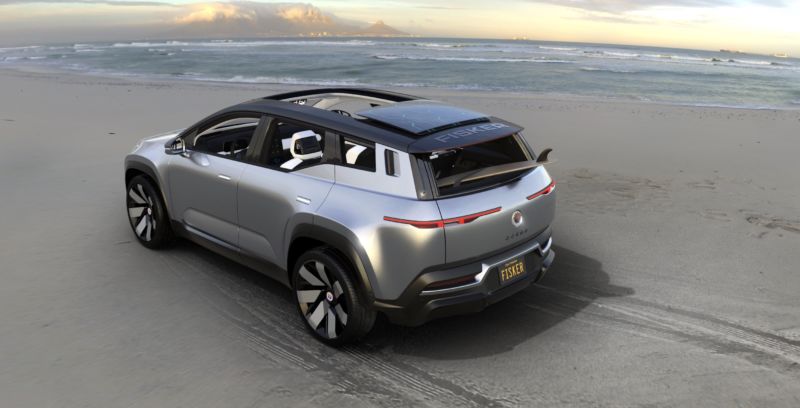The automotive industry has got SPAC madness, and it may not end well

Enlarge / Fisker now has a market cap of $4.1 billion thanks to a SPAC reverse merger in 2020. It says that the Ocean SUV will be the most sustainable vehicle ever sold. (credit: Fisker)
With technology disrupting the automotive industry, investors have raced to secure exposure to potential winners-whether battery makers, manufacturers of other forms of power storage or developers of the lidar" sensors that some believe are key to the development of self-driving cars.
Yet, according to a Financial Times analysis, the nine auto tech groups that listed via a special-purpose acquisition company (SPAC) last year expected revenues of just $139 million between them for 2020. They include QuantumScape, a battery company backed by Bill Gates and Volkswagen; the hydrogen truck start-up Nikola; and the lidar company Luminar Technologies.
While the past 12 months proved a hot market for tech groups doing conventional IPOs, bankers and lawyers say that the SPAC process gives companies-and the vehicles acquiring them-far greater latitude in disclosing future financial projections. The nine auto tech companies, for example, together predict their revenues will reach $26 billion by 2024.
Read 19 remaining paragraphs | Comments